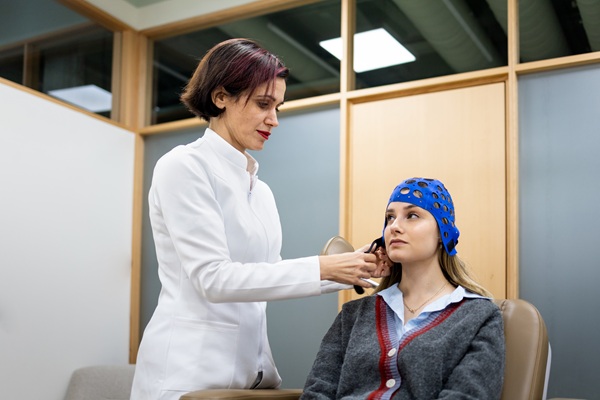Seeing a Psychiatrist to treat PTSD

Post-traumatic stress disorder, or PTSD, is a serious issue that affects many people each year. It is important to see a psychiatrist for PTSD when symptoms worsen and interfere with your daily life.
By understanding key information about PTSD, you can learn how to overcome minor issues and determine when to get professional help.
Psychiatrists and PTSD treatment
The road to recovery from PTSD is not always easy. It is often challenging to overcome specific triggers.
However, seeing a psychiatrist can significantly improve and ultimately help those with PTSD manage the disorder.
The following is everything to know about PTSD, including how a psychiatrist can help with treatment.
What is PTSD?
PTSD is a mental illness that develops as a result of a traumatic experience, such as a near-death experience or sexual violence. PTSD can also be the result of witnessing a traumatic event happen to someone else.
Those who have PTSD often have very vivid memories of the experience that can often feel as real as it did when the event first occurred.
Many with PTSD suffer from intrusive memories, flashbacks and nightmares. These can cause significant distress and drastically change the patient’s ability to function daily.
How can a psychiatrist help with PTSD?
A psychiatrist can help with PTSD by offering the patient various coping methods and management tools.
A psychiatrist has a variety of treatment options available to them for PTSD, ranging from medication to therapy. It is crucial for those who have PTSD to seek help from a psychiatrist to deal with the symptoms.
However, those with PTSD often fear psychiatric treatment. It can be uncomfortable to confront certain memories. That said, addressing the issues behind your PTSD can help you take control of your thoughts and emotions.
Treatment options for PTSD
There are a variety of treatment options for PTSD. While the recovery process may take time and patience, you can overcome PTSD through consistent treatment.
The most common treatment options available to PTSD patients include psychotherapy and medication.
In some instances, psychotherapy is enough to deal with PTSD. This process helps patients learn appropriate ways to address the symptoms and cope with the experiences.
If psychotherapy is not effective than antidepressants or anti-anxiety medication may be utilized as well. These medications prevent the areas in your brain that cause grief or anxiety from overreacting.
When to see a psychiatrist
It is important to see a psychiatrist for PTSD anytime symptoms present themselves. Since those with PTSD may be hesitant towards therapy, it is vital for loved ones to be able to recognize the signs as well.
Most commonly, symptoms of PTSD include negative changes in thinking and mood, intrusive memories and changes in emotional reactions.
We can help
If you or a loved one suffer from symptoms of PTSD, please give us a call. We can help create a treatment plan to overcome this disorder and help you regain control of your everyday life.
Request an appointment here: https://futurepsychsolutions.com or call Future Psych Solutions at (803) 335-5232 for an appointment in our Columbia office.
Check out what others are saying about our services on Yelp: PTSD in Columbia, SC.
Recent Posts
Mental health plays a critical role in overall well-being, influencing thought patterns, emotional stability, and behavior. For those experiencing persistent challenges, a formal diagnosis can provide clarity and a structured approach to healing. With guidance from a psychiatrist, individuals can better understand their condition and begin a path toward long-term mental wellness.A mental health diagnosis…
Are you looking for a TMS doctor? A TMS doctor is one that offers Transcranial magnetic stimulation to treat patients with major depressive disorder, which is also called MDD or clinical depression. Every TMS doctor utilizes their own method of treatment and many practices under other titles such as that of a psychiatrist. Learning more…
Post-traumatic stress disorder (PTSD) is a mental health condition that can develop after experiencing or witnessing a traumatic event. PTSD treatment aims to reduce symptoms and help people function better in their daily lives. It also focuses on improving their overall health and well-being. PTSD often causes anxiety, flashbacks, and emotional distress, making effective treatment…
Everyone experiences occasional anxiety, but an anxiety disorder involves persistent, excessive worry and physical symptoms that can disrupt daily routines, relationships, and overall well-being. If left untreated, these symptoms can intensify, impacting mental and physical health. Seeking help from a psychiatrist can be a significant first step toward effectively managing anxiety disorder symptoms and getting…


